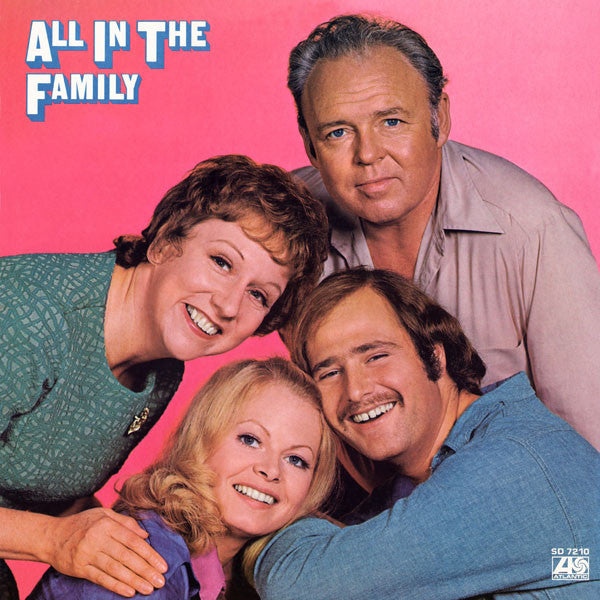
The tale of All in the Family and its rise to television prominence is nothing short of remarkable, marked by a series of bold decisions, missed opportunities, and the kind of risks that change the course of entertainment history. Created by the visionary Norman Lear, the show was conceived in the cultural upheaval of the late 1960s, a period when television was dominated by light-hearted, family-friendly comedies that avoided any serious engagement with the pressing social issues of the time.  While the world around them was grappling with movements like Civil Rights and the Vietnam War, TV networks were still serving up wholesome fare, where characters were often idealized versions of suburban life, and issues of race, politics, and social change were barely acknowledged. In contrast, Lear’s idea was to introduce a sitcom that wasn’t afraid to tackle the divisive, uncomfortable issues of the day. Inspired by the British show Till Death Do Us Part, Lear wanted to shine a spotlight on a working-class American family through the character of Archie Bunker, a loudmouthed, bigoted patriarch whose views clashed with the more liberal ideas of his son-in-law and wife. The characters were deeply flawed, but they provided a mirror to society’s issues—issues that were rarely touched upon in mainstream television at the time.
While the world around them was grappling with movements like Civil Rights and the Vietnam War, TV networks were still serving up wholesome fare, where characters were often idealized versions of suburban life, and issues of race, politics, and social change were barely acknowledged. In contrast, Lear’s idea was to introduce a sitcom that wasn’t afraid to tackle the divisive, uncomfortable issues of the day. Inspired by the British show Till Death Do Us Part, Lear wanted to shine a spotlight on a working-class American family through the character of Archie Bunker, a loudmouthed, bigoted patriarch whose views clashed with the more liberal ideas of his son-in-law and wife. The characters were deeply flawed, but they provided a mirror to society’s issues—issues that were rarely touched upon in mainstream television at the time.
When Lear first brought the pilot to ABC, the network saw it as too much of a gamble, a dangerous venture that could alienate viewers and advertisers alike. Despite the fact that the pilot episode was met with an enthusiastic response from the studio audience, ABC rejected it, having already sunk $250,000 into its development. Lear has often spoken about how the laughter in the studio was loud and uncontrollable, but the network’s executives, fearing the backlash and unsure how to deal with the controversial content, decided it wasn’t worth airing. They didn’t doubt its potential to be funny, but the provocative nature of the humor and its unapologetic tackling of hot-button topics like racism, gender roles, and working-class struggles left them too apprehensive to make it a part of their programming lineup. As a result, ABC passed on what would become one of the most important and influential sitcoms in TV history.
However, CBS, a network at the time more willing to take risks, decided to take the plunge. They reworked the pilot into a new version, changing the title to Meet the Bunkers and including a lengthy disclaimer at the start of the show to warn viewers about the controversial content they were about to see. The network, too, was unsure of how the American public would react to a show so bold and unfiltered in its portrayal of social issues. They understood that All in the Family was a far cry from the gentle, idyllic comedies that had dominated television for years—shows like The Andy Griffith Show, Gilligan’s Island, and Petticoat Junction—but they knew that television was in need of change. Thankfully, CBS’s gamble paid off. The show quickly resonated with audiences and became a massive hit. It broke barriers with its irreverent humor and unflinching exploration of complex social topics. All in the Family didn’t just change the sitcom landscape; it challenged the very nature of what television could accomplish. The show’s success spurred a cultural shift, influencing not only other TV programs but also how people talked about race, politics, and family life in the real world.
ABC’s decision to pass on All in the Family despite having already invested a quarter of a million dollars in it is seen today as one of the most significant missteps in television history. Lear’s original vision, which seemed too bold and edgy for 1970s American audiences, turned out to be exactly what viewers were ready for. In the years that followed, All in the Family became not just a television series but a cultural phenomenon. It set the stage for more socially conscious TV shows and laid the groundwork for a new era of comedy that could speak to the realities of modern life. In the end, ABC’s loss was CBS’s gain, and All in the Family went on to become one of the most influential and beloved shows of its era—shaping not only the sitcom genre but the wider conversation around social issues in America.
